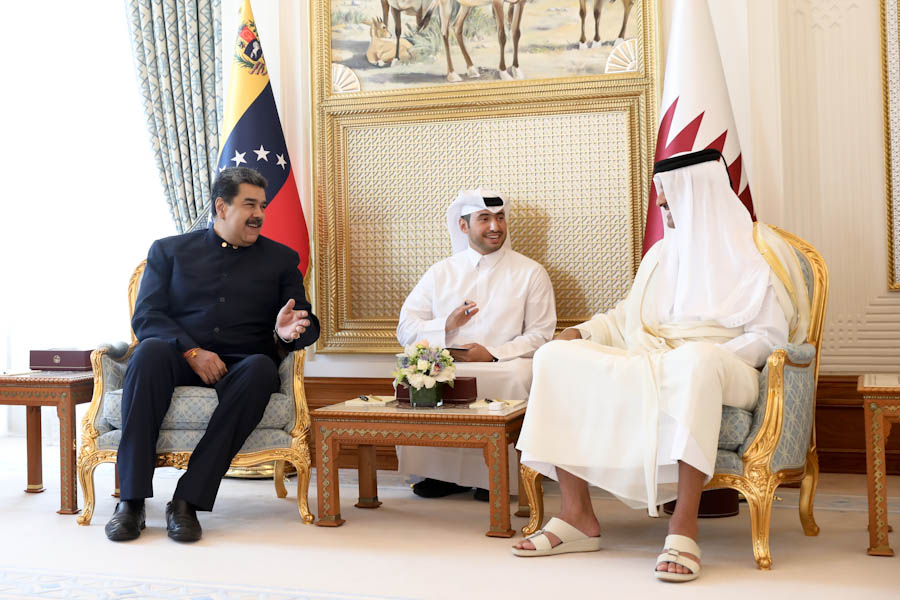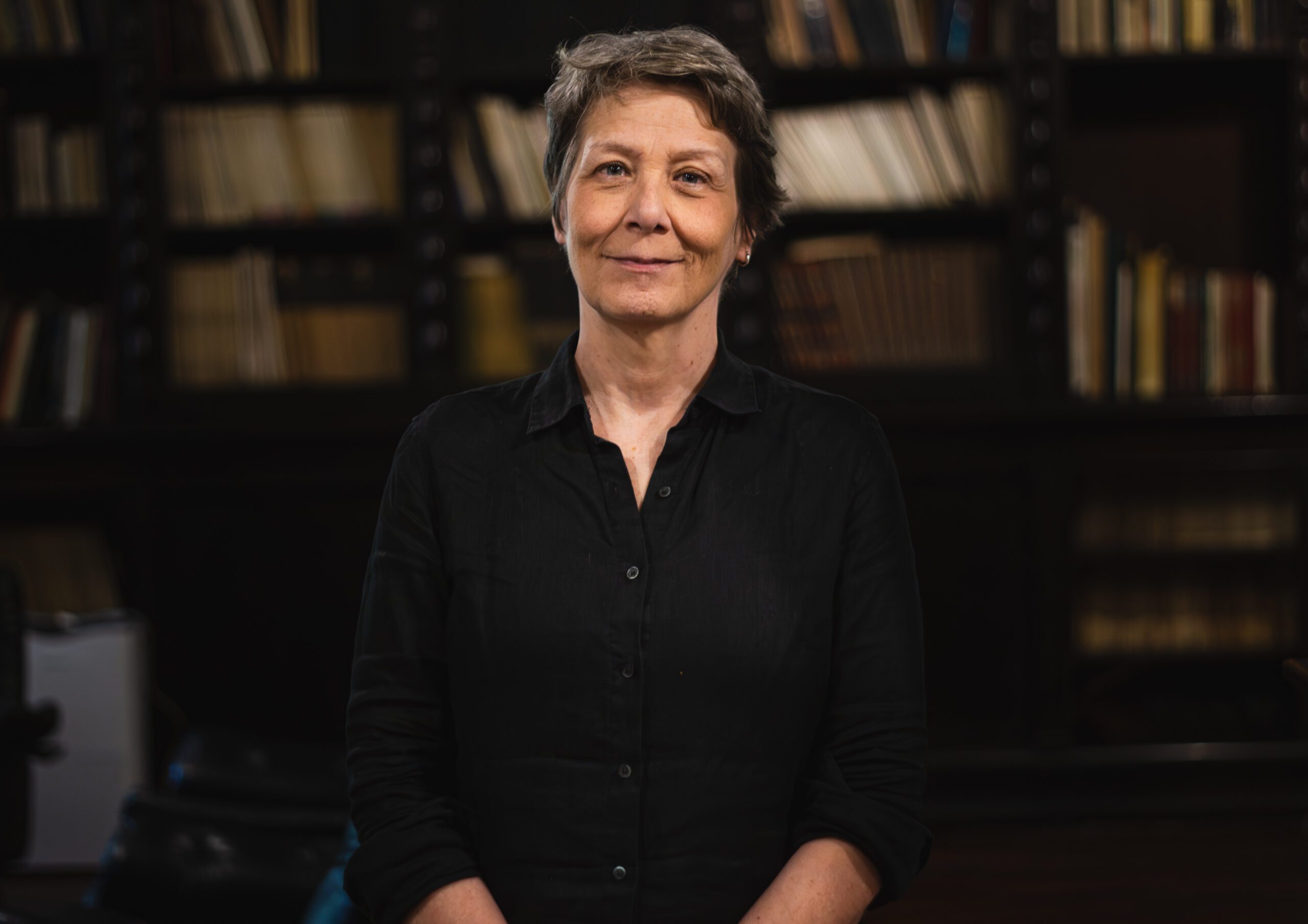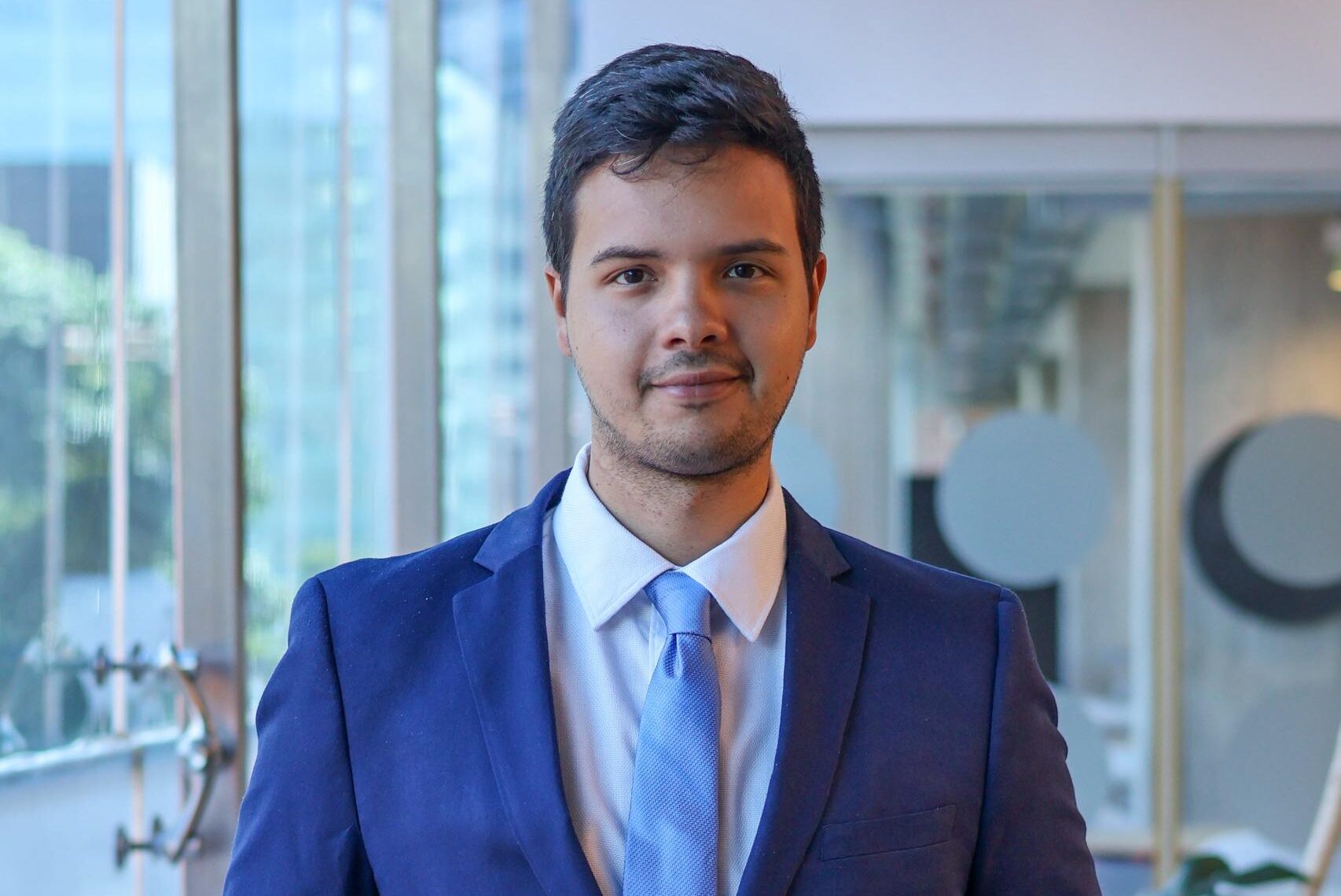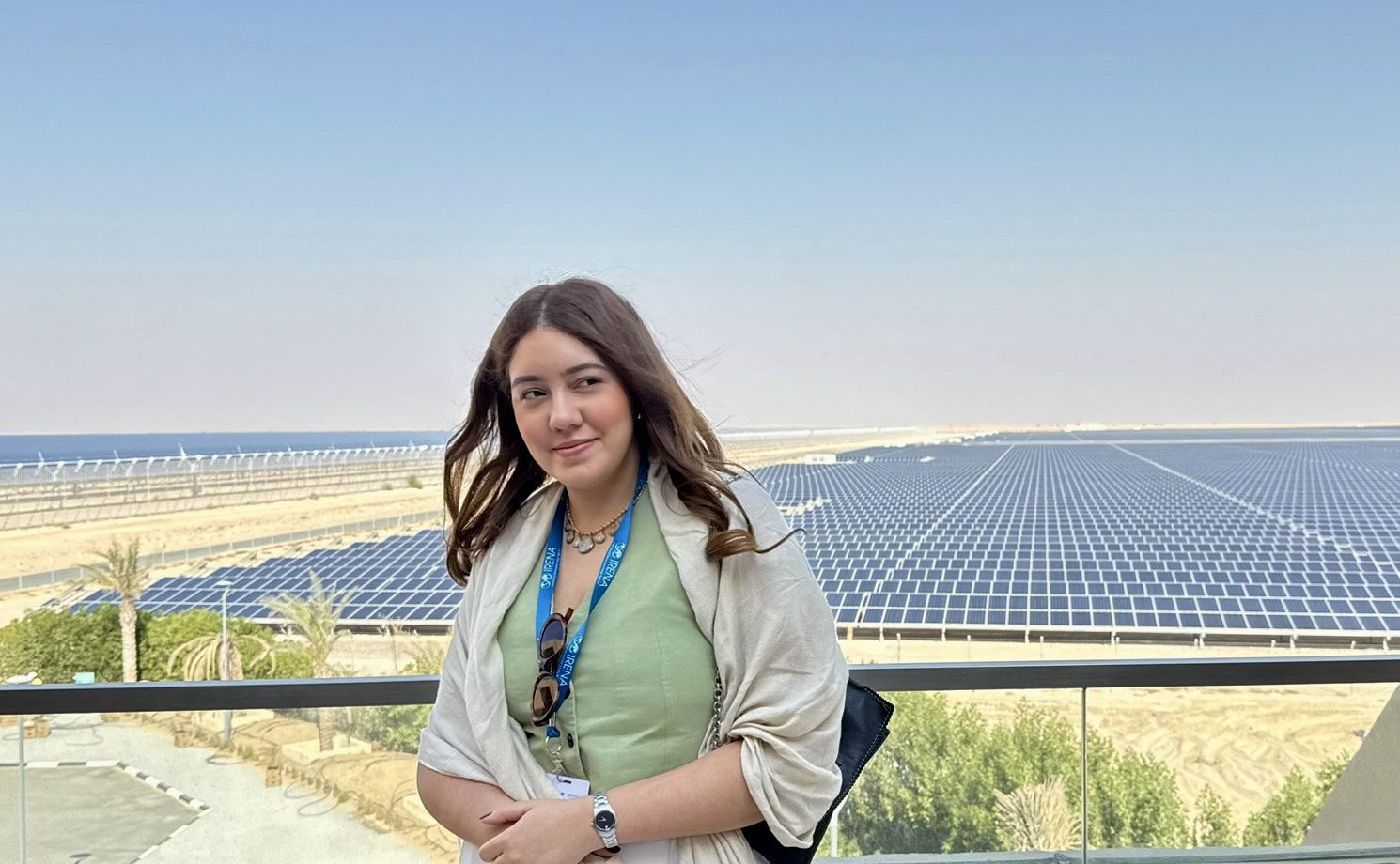The Emir of Qatar, Tamim bin Hamad Al Thani, and Venezuelan Vice President Delcy Rodríguez, accompanied by Qatari Prime Minister Mohammed bin Abdulrahman Al Thani, reviewed the progress of the bilateral cooperation agenda between both nations. Photo: Venezuelan Vice Presidency.
Guacamaya, April 29, 2025. Faced with the tightening of sanctions and international isolation, the Venezuelan government finds in Qatar a discreet opportunity for potential negotiations, seeking financing, and reinserting itself into the diplomatic map.
In a world where hard-power diplomacy does not seem to work as before, and more practical mediation begins to have its moment, Qatar presents itself as a key player, albeit in a somewhat silent role. Its role as an intermediary, especially between the United States and Venezuela, not only shows its growing ambition at a global level but also illustrates how smaller nations are beginning to make themselves noticed in international politics.
In this context, Delcy Rodríguez, the Vice President of Venezuela, has arrived in Doha for an official working visit. In parallel, Nicolás Maduro announced in his weekly television program that “flights between Doha and Caracas are almost ready to begin.” In January of this year, Qatar Airways announced that it was expanding its presence in Latin America with new routes to Colombia and Venezuela.
Starting in the summer of 2025, Qatar Airways will strengthen its global connectivity by inaugurating two unprecedented weekly flights that will link Doha with Bogotá and Caracas. The services will operate on Wednesdays and Sundays, marking a milestone for the airline, which will become the first and only Middle Eastern company to offer direct flights to Colombia, as well as the only one with regular operations in Venezuela.
The route will have as its starting point Hamad International Airport in Doha, with a stop at El Dorado Airport in Bogotá, before continuing to Simón Bolívar Airport in Caracas. On the return journey, flights from Caracas to Doha will be direct, without technical stops.
With this addition, Qatar Airways’ network in the Americas will reach 16 destinations, consolidating its expansion in the region. Cities like Miami, New York, São Paulo, Toronto, and Dallas are already part of its offerings, and now Bogotá and Caracas join as strategic enclaves to connect the Middle East with South America. This move not only reinforces its position as an important leader in international aviation but also facilitates commercial, tourist, and diplomatic ties between these regions.
In this sense, Delcy Rodríguez’s visit to Doha is marked by a context that must be taken into account to understand its importance. Qatar has become an important actor in the Venezuelan conflict, and therefore it is pertinent to review its background and diplomatic actions regarding the country.
From Doha to Caracas: The silent expansion of Qatari diplomacy
Let’s talk a bit about how Qatar has changed. This Gulf country, which at one time focused mainly on its own security, has managed to transform itself into a mediator of conflicts in different parts of the world. This did not happen overnight; it has been part of a well-thought-out plan, linked to its National Vision 2030, which seeks to turn Doha into a hub for everything related to diplomacy, finance, and energy at a global level.
When Qatar found itself in the middle of a blockade by Saudi Arabia and its allies for several years, it understood that its future depended on being a neutral intermediary. Instead of building walls, it began building bridges. From Afghanistan to Gaza, passing through countries like Sudan and Chad, Doha has demonstrated that with patience, a practical approach, and a willingness to invest, it can position itself as a reliable mediator.
After the Arab Spring, Qatar modified its foreign policy strategy, transitioning from a disruptive regional actor to a pragmatic international mediator. According to Ali Abo Rezeg in Qatari Foreign Policy in a Precarious Decade, this transition was based on three pillars:
- Active international mediation in highly complex conflicts.
- Pragmatic diplomacy, maintaining open channels with conflicting actors.
- Projection of “soft power,” through strategic investments, humanitarian diplomacy, and global events such as organizing the FIFA World Cup in 2022 and other international competitions.
Now, this strategy has brought Qatar to Latin America. For Venezuela, which is under international sanctions and with a severely damaged economy, Qatar is not just a partner in terms of energy or finance. It represents a way to dialogue with Washington more privately, without the pressure of having to surrender or be part of public exposure. Through Doha, Venezuela can address humanitarian issues, seek relief from sanctions, and, most importantly, stay on the international radar when narratives often leave it aside.
For Qatar, this relationship means something similar: a chance to demonstrate that it can mediate without geographical limits. Being able to act between two important adversaries in the American continent helps Qatar strengthen its profile in the region, gaining more influence outside the Gulf and Middle East area.
What is interesting is that Qatar’s incursion into Venezuela is not an isolated case. Doha has been creating a network of mediations on a global scale. For example, in 2020, it managed to facilitate agreements between the United States and the Taliban. It has also been involved in humanitarian exchanges between Israel and Hamas in the context of the Gaza crisis and has led peace negotiations in places like Sudan and Chad. In 2008, it helped resolve a political crisis in Lebanon with an agreement that bears its name. Throughout these efforts, Qatar has built a reputation for not imposing ideological agendas, offering a safe space for dialogue and, when necessary, putting resources on the table.
What is happening between Qatar and Venezuela also tells us a lot about the current world. First, Latin America is no longer just a terrain of U.S. influence; smaller countries like Qatar are finding spaces to do diplomacy differently. On the other hand, Venezuela now has an opportunity to maintain and build a dialogue alternative that several of its allies like Iran or Russia have been using to negotiate with Trump. Additionally, Qatar, being a giant in gas and oil production, has a genuine interest in keeping energy prices stable, which led it to make efforts before the Biden administration for Venezuelan oil to re-enter the legal market and leave the black market where it was due to sanctions. The same reason applies to Russian oil, which is also sanctioned and is the main motivation for its neighbor Saudi Arabia to mediate between Russia and the United States.
The relations between Venezuela and Qatar are marked by an attempt by both countries to establish their own autonomy in a changing world. Venezuela, which has faced harsh sanctions, is in search of new allies. For its part, Qatar, which has managed to overcome the difficulties of a blockade in the Gulf region, has reinforced itself as a key player in diplomacy, especially in complicated situations where few want to get involved.

How has Qatar acted with other sanctioned countries? The Rosneft and Russia case
It is worth noting that a considerable part of the board of Rosneft, the Russian energy company that had significant investments and was a key actor in evading U.S. sanctions against Venezuela during Trump’s first administration, is Qatari. In fact, positions as important as the Chairman of the Board of Directors of Rosneft are held by Qataris, in this case, the visible figure is Mohammed Bin Saleh Al-Sada, who holds the position and who also received the award as “Oil Diplomacy Man of the Year” in the United Kingdom in 2017. Additionally, he was Minister of State for Energy and Industrial Affairs of the State of Qatar until 2011. Currently, he holds the position of Chairman of the Board of Trustees of the Doha University of Science and Technology and is also a Member of the Board of Trustees of the Abdullah Bin Hamad Al-Attiyah International Foundation. Both responsibilities reflect his prominent role in both educational and institutional spheres internationally and within Qatar.
Rosneft is one of the largest oil companies in the world and also the main state energy company in Russia. Since 2016, Qatar’s sovereign wealth fund, known as Qatar Investment Authority (QIA), together with Glencore, took a significant portion of Rosneft, reaching about 19.5%. Although Glencore later sold its share, QIA remained as the main foreign investor, meaning they have an important role in the company’s decisions. All this happened when the main Western investors withdrew from the company, so Qatar filled the void.
Now, with everything happening in Ukraine, this relationship has several interesting points to consider. First, let’s talk about how this helps Rosneft not to be so financially isolated. Since the West imposed sanctions on Russia and its large companies, Qatar’s participation became key. Qatar is a country that maintains good relations with both the West and Russia, which can help Rosneft move forward. For example, Qatar can help Rosneft conduct business that would be difficult for other Russian companies under sanctions.
Then there is access to new markets and Arab capital. Qatar has considerable influence in the global energy market and has been able to help Rosneft sell oil in places like Asia and Africa. This allows it to find buyers for its crude, which is very important in times of pressure and isolation.
Another point to consider is Qatar’s geopolitical weight. This country has a special ability to maintain good relations with various important actors, including the U.S., Iran, Russia, and Europe. Having Qatar as a partner in Rosneft helps soften any stronger pressure that may be imposed on the company internationally. It is like having a mediator in a complicated discussion, a bulletproof vest or a shield that others think twice before harming further.
Lastly, the relationship between Qatar and Russia can influence the global energy matrix. Both are major energy producers, and this alliance could lead to better coordination in energy markets. This is key, especially now that Europe is looking for ways to reduce its dependence on Russian gas and oil after the Ukraine war.
Qatar’s participation in Rosneft has important effects. It helps the company not be so alone in the financial scenario, opens new business opportunities, and provides a kind of political coverage at a time of pressure and sanctions for Russia.
From the Chevron Model to the Rosneft Model: Lessons for a sanctioned Venezuela from a mirror to look at
Both Russia and Venezuela have been dealing with sanctions in their oil industry, imposed by the political West. What they have done is seek similar solutions. For example, they are using the help of strategic friends. Countries like China, Iran, India, and Turkey, in Venezuela’s case, are buying that restricted oil at discounts on the black market.
A big lesson that Venezuela has surely learned from Rosneft’s experience in Russia is that having strong partners, like Qatar, can make operating and trading oil a bit more manageable, even with all the pressure from sanctions.
The relationship that Qatar has with Rosneft is a good example and could set a precedent. Venezuela has been seeking a connection with Qatar for some time. In the past, Qatar had already offered financing to PDVSA, Venezuela’s oil company, given the fall in oil prices that occurred in 2015 and 2016. During that time, loans to Venezuela and its oil industry were being negotiated.
In this vein, in 2023, the magazine Petroguía published that Delcy Rodríguez, on a previous visit to Qatar, had a meeting with Emir Tamim bin Hamad Al-Thani. Although officially it was said to be about reviewing relations between Venezuela and Qatar, there was more beneath the surface. Venezuelan technicians were working hard to negotiate about $4 billion in disbursements. Additionally, they were trying to reach an agreement with the Qatar Fund for Development and also wanted to accelerate the signing of a memorandum for Qatar Energy to obtain a license to explore gas in Venezuela. This shows that, beyond the ceremony, there were economic objectives at play that could be quite relevant and could remain on the table.
The Rosneft and Qatar case is one of partial success, and Venezuela must be taking note of this. However, it must recognize that it has more difficulties, not only due to the lower oil production it manages but also due to internal convulsions. Although Venezuela wants to learn from what Rosneft has done with Qatar, it does not have the same strength to negotiate nor the adequate infrastructure to do so in the same way. Nevertheless, the partial success of Rosneft and Qatar leaves a mirror to look at that did not exist during Donald Trump’s first administration.
Qatar’s participation in Rosneft shows that having a good financial ally can help protect an oil company under sanctions. Venezuela surely has its sights set on the achievements of the Russian-Qatari alliance but encounters more obstacles within the country to achieve something similar. However, the Rosneft model with Qatar gives it clues and a guide on how it could build alliances in the future to evade sanctions. The Russian evasion strategy that emerged after the start of the Ukraine War and the imposition of Western sanctions could set a precedent for success that Caracas has surely followed closely, anticipating the scenario of “maximum pressure” promoted by Donald Trump.
Russia and Venezuela are very close allies; Moscow was a very important support for Caracas during the imposition of U.S. sanctions during Trump’s first administration. Therefore, the Russian experience will be an important reference for Venezuelan authorities in this new but expected scenario.
Discreet Bridges: How did Qatar become the key intermediary for Venezuela?
Since around 2022 and 2023, Qatar played a crucial role as a communication channel between Nicolás Maduro’s government and high-ranking officials in the United States, at the time of the Biden administration. This has included assisting in negotiations that are not always direct and that have yielded some results, such as:
- The release of U.S. citizens detained in Venezuela.
- Partial relief of oil sanctions in exchange for certain progress on electoral or humanitarian issues in Venezuela.
- The promotion of basic agreements to prevent an even deeper humanitarian and migratory crisis in the country.
Qatar played a decisive role in establishing a minimal environment for dialogue between the United States and Venezuela, which was crucial at the same time that talks were taking place in places like Mexico and Barbados. This means that Qatar could continue to be an important channel to reduce tensions or negotiate certain sanctions relief, political issues, releases, or exchanges in case Washington and the Trump administration so desired. For Venezuela, it could be useful to look to Doha as a way to explore financing options or humanitarian support not so tied to U.S. sanctions.
The range of actions Qatar can take will depend on its ability to manage its relations with both Washington and Caracas, trying to maintain a neutral image. By having a good relationship with a country like Venezuela, which is more isolated due to sanctions, Qatar positions itself as an interlocutor available to all parties without getting directly involved in conflicts between larger powers.
From Qatar’s perspective, Venezuela represents a valuable partner in energy terms and a strategic opportunity within the new map of global alliances that has emerged after the sanctions.
What is interesting about the relationship between Venezuela and Qatar is that it is discreet and, at the same time, very practical. Unlike countries like China, Russia, Turkey, or Iran, which have shown more direct support for Caracas, Qatar has maintained a low profile, focusing more on the economy, energy, and diplomacy, without making many statements about the problems Venezuela faces.
Moreover, Qatar’s situation is not isolated. There are other states in the Gulf region that are also taking on mediating roles in various situations.
Oman: mediator between the United States and Iran
For example, Oman has been key in secret talks between the United States and Iran regarding the Iranian nuclear program. Its policy of neutrality and its image of trust have allowed it to act as a bridge between countries that usually disagree.
Saudi Arabia: mediator in talks between the United States and Russia on the Ukraine War
On the other hand, Saudi Arabia, which is normally seen as a power that employs more traditional strategies, has also begun to act as a mediator. Currently, it is organizing talks between the United States and Russia amid the situation caused by the war in Ukraine.
Qatar’s potential as a mediator with Venezuela in the Trump era
If the Trump administration desires, Qatar could be for the Venezuelan case what Oman is for the Iranian case with the nuclear program or Saudi Arabia for the Russian case with the Ukraine war. For now, while the policy towards Venezuela is led by Marco Rubio and the senators from Florida, such a situation seems complex or unlikely. However, the Qatar option and its previous experience remain there in case Trump opts for a more pragmatic or negotiation-driven action embodied by the figure of Richard Grenell, the U.S. Special Envoy for Venezuela and North Korea.
During Trump’s first term, U.S. foreign policy was different. With an often conflictive approach and bilateral negotiations that sometimes took place discreetly, space was opened for other actors, like Qatar, to intervene. Despite the sanctions, the United States showed interest in not completely closing off dialogue with Venezuela. Even at the start of his term, we saw Richard Grenell’s visit to Caracas to negotiate the release of U.S. citizens in the country.

Given that Qatar also seeks stability in energy markets, its involvement could facilitate the regularization of Venezuelan oil in international markets, something of interest to both Caracas and the United States.
Qatar offers a space where Venezuela can return to dialogue with the United States without the rigidity of public confrontation. This is crucial to address delicate issues such as sanctions relief, the humanitarian crisis, the situation of Venezuelan migrants, and strategic issues related to energy policy.
For Venezuela, having Qatar as an intermediary could mean better inclusion in global negotiations. It could also help open markets for its oil. From the U.S. perspective, turning to Qatar could make things easier, focusing on a less aggressive foreign policy. Additionally, actors must commit to effective dialogue processes and maintain a balance between internal interests and the geopolitical realities of each actor.
Qatar’s mediation in other international scenarios shows that it is possible to reach agreements that, although partial, manage to alleviate tensions without requiring overly binding political commitments. In Venezuela’s case, it would not resolve the conflict but could prevent it from deepening and becoming more costly for the population and the region.
However, for this, Venezuela must be willing to make compromises, which is not always politically easy. Also, any change in U.S. policy could influence Qatar’s ability to mediate.
Qatar has an important role as a mediator between the U.S. and Venezuela. Its neutral and discreet approach, along with its experience, places it in a good position to help in a complicated context. However, success will depend on all parties being willing to dialogue and find common ground, something that at the moment seems quite distant.
In a context where political relations tend to be very rigid and the international order is fragmented, Qatar and Venezuela seem to realize that, despite their differences, finding shared interests can be the new approach to doing diplomacy. Maduro seems to follow the steps of Russia and Iran in his approaches to Gulf nations.
The Gulf nations are consolidating as a new bridge between East and West, a space where geopolitical adversaries can dialogue through the diplomatic facilitation of countries like Qatar, the United Arab Emirates, Saudi Arabia, and Oman. In Venezuela’s case, Doha could offer an opportunity that will not be easy to build but is very necessary for the country and its crisis situation, which could worsen after the tightening of sanctions and the critical conditions the nation already faces due to government policies and the multidimensional crisis.
In times of divisions and rivalries, it is these astute small nations that are setting new patterns in the geopolitical game. And although Venezuela continues to face challenges, it does not want to be left out of this new form of interaction on the global map that is marking the international scene. All this marks a context that must be paid attention to in order to understand the importance and implications of Delcy Rodríguez’s visit to Qatar at this moment.
Under this context and within the framework of a diplomatic meeting, the Emir of Qatar, Tamim bin Hamad Al Thani, and Venezuelan Vice President Delcy Rodríguez, accompanied by Qatari Prime Minister Mohammed bin Abdulrahman Al Thani, reviewed the progress of the bilateral cooperation agenda between both nations, in addition to exchanging perspectives on topics of global interest. The meeting stood out for its focus on strengthening strategic ties and analyzing common challenges in the international scenario.







